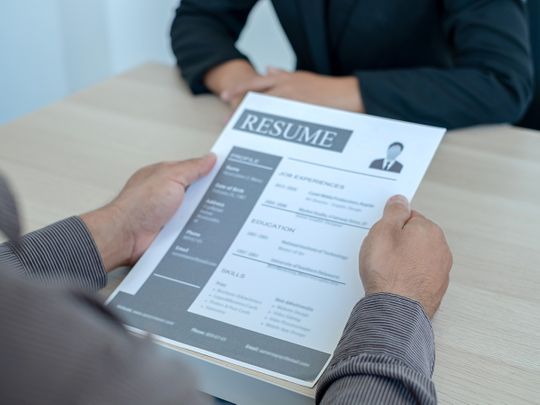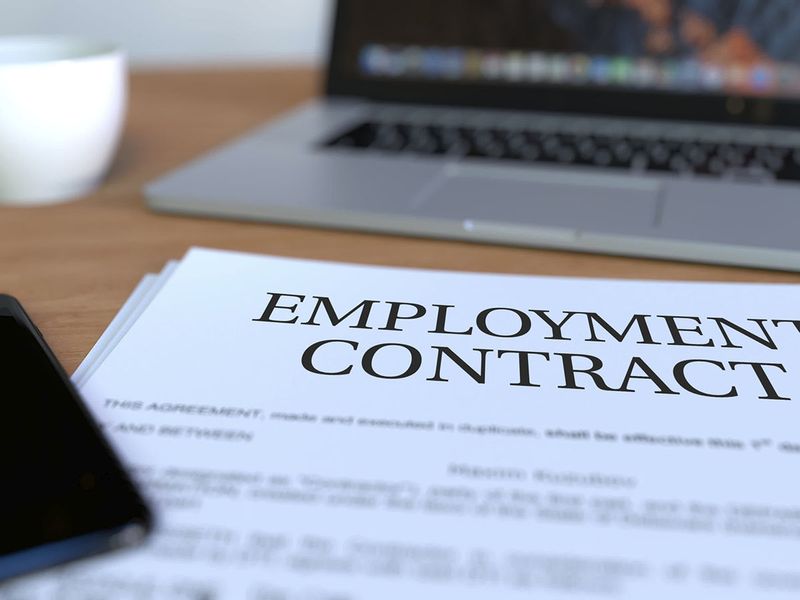
Once you are in the UAE, your employer can apply for a residence visa and a labour card within the first 60 days of arriving in the country. Picture used for illustrative purposes only.
Image Credit: Shutterstock
Dubai: Have you just found a job opening in the UAE that suits your skills and experience? Before you make your move to the country, did you know that you should first receive a job offer letter from the potential employer?
There are various aspects of your rights and responsibilities as a new worker moving to the UAE that you should be aware of. Here are some of the guidelines that you should follow if you are planning to make the move to the UAE to live and work.
Finding a job in the UAE

If you have found a job already, your employer will handle most of the paperwork for you. Picture used for illustrative purposes only.
There are different ways in which you can find a job in the UAE while you are not in the country. Local recruitment agencies in your country of residence may help you find a suitable opening, or you can directly apply to UAE-based organisations through their websites.
If you have found a job already, your employer will handle most of the paperwork for you. To get your work permit, the first step is to get an entry visa. For citizens of many countries, this can be issued pre-arrival or you can get an on-arrival visa if you belong to these countries.
Once you are in the UAE, your employer can apply for a residence visa and a labour card within the first 60 days of arriving in the country.
Work permit application
Your employer will submit a list of required documents for your work permit application:
• A copy of your passport (valid for at least six months)
• A visa application form
• A passport sized photo
• Your entry permit (the visa on which you entered the UAE)
• Three copies of your employment contract
• Education certificates, plus any professional qualifications
• A copy of the trade licence
What costs should my UAE employer be expected to cover in relation to my employment in the UAE?
UAE law requires your employer to pay the costs of your recruitment and deployment. These include any fees paid to a private recruitment agency that is accredited by the government of your country, the costs of the issuance of an entry visa and travel to the UAE, and the costs of post-arrival processing requirements such as medical tests in the UAE and the issuance of your residency permit.
What should I expect to sign before I start work in the UAE?

Ask your recruiter for a copy of the job offer and keep it with you in a safe place. Picture used for illustrative purposes only.
The terms and conditions of your employment should have been made clear to you by your recruiting agent or your employer when you received your written job offer, prior to travelling to the UAE. If you are currently still being processed for travel to the UAE, make sure you are aware of and understand the full terms and conditions of the job offer, including your job title and responsibilities, your salary and allowances, and the detailed conditions of work, before you sign. Ask your recruiter for a copy of the job offer and keep it with you in a safe place. If you have already reported to your employer in the UAE, the employment contract you are asked to sign must contain the exact same terms and conditions as in your original job offer. If you are asked to sign a contract with different terms and conditions, even if you are advised that the changes are advantageous to you, report immediately to the nearest MOHRE customer happiness centre or call them on 800 84. Contract substitution is illegal and you are entitled to the same terms and conditions you agreed to when you consented to the original job offer.
>>> Read full article>>>
Copyright for syndicated content belongs to the linked Source : Gulf News – https://gulfnews.com/living-in-uae/ask-us/got-a-job-in-the-uae-guidelines-to-keep-in-mind-before-coming-to-the-country-1.1697463982409










